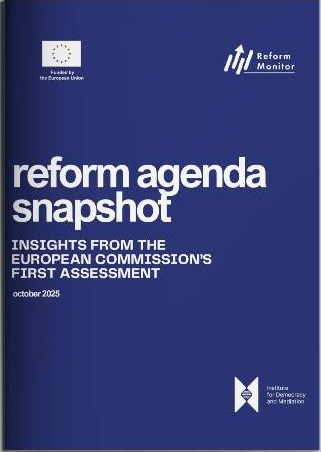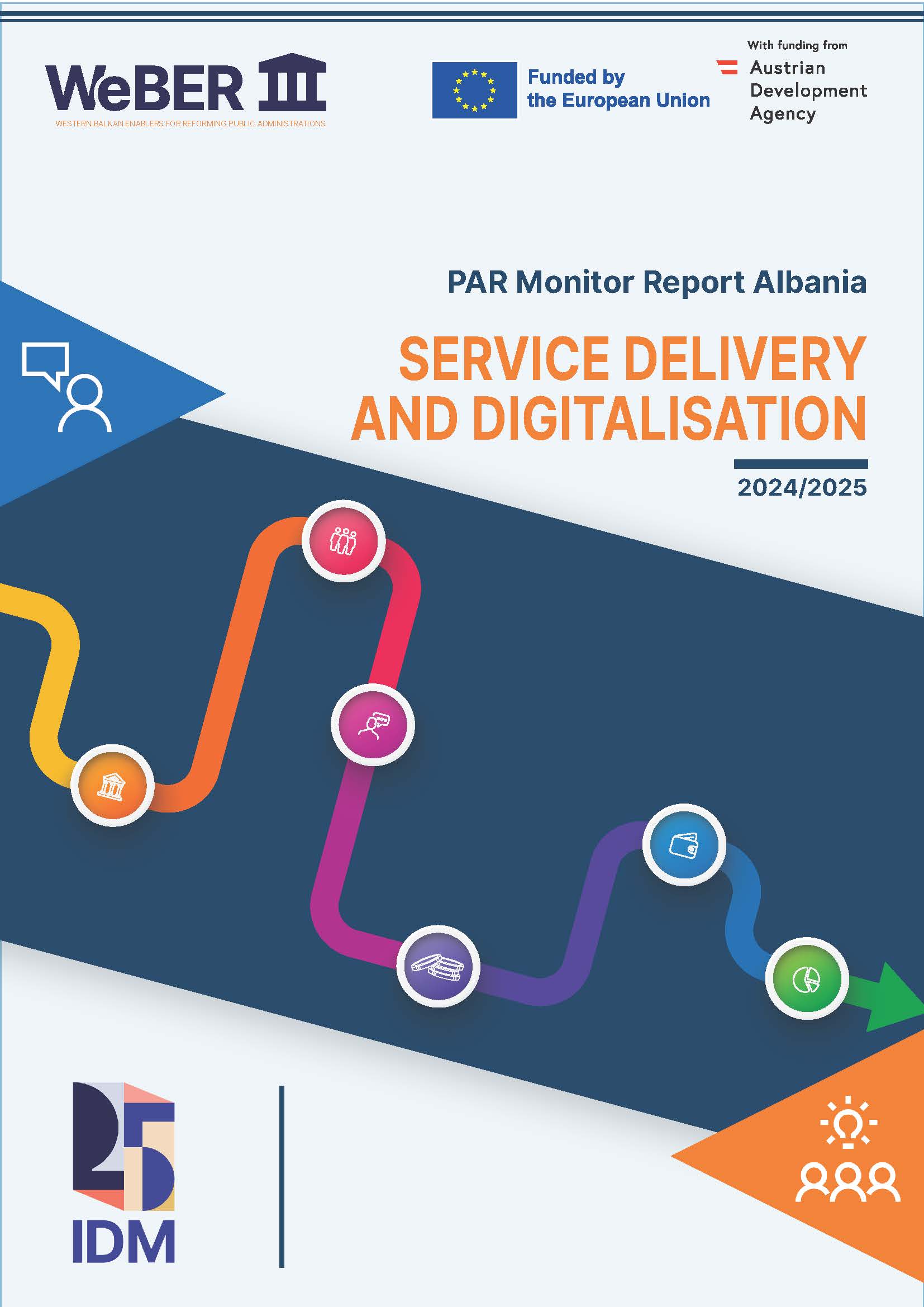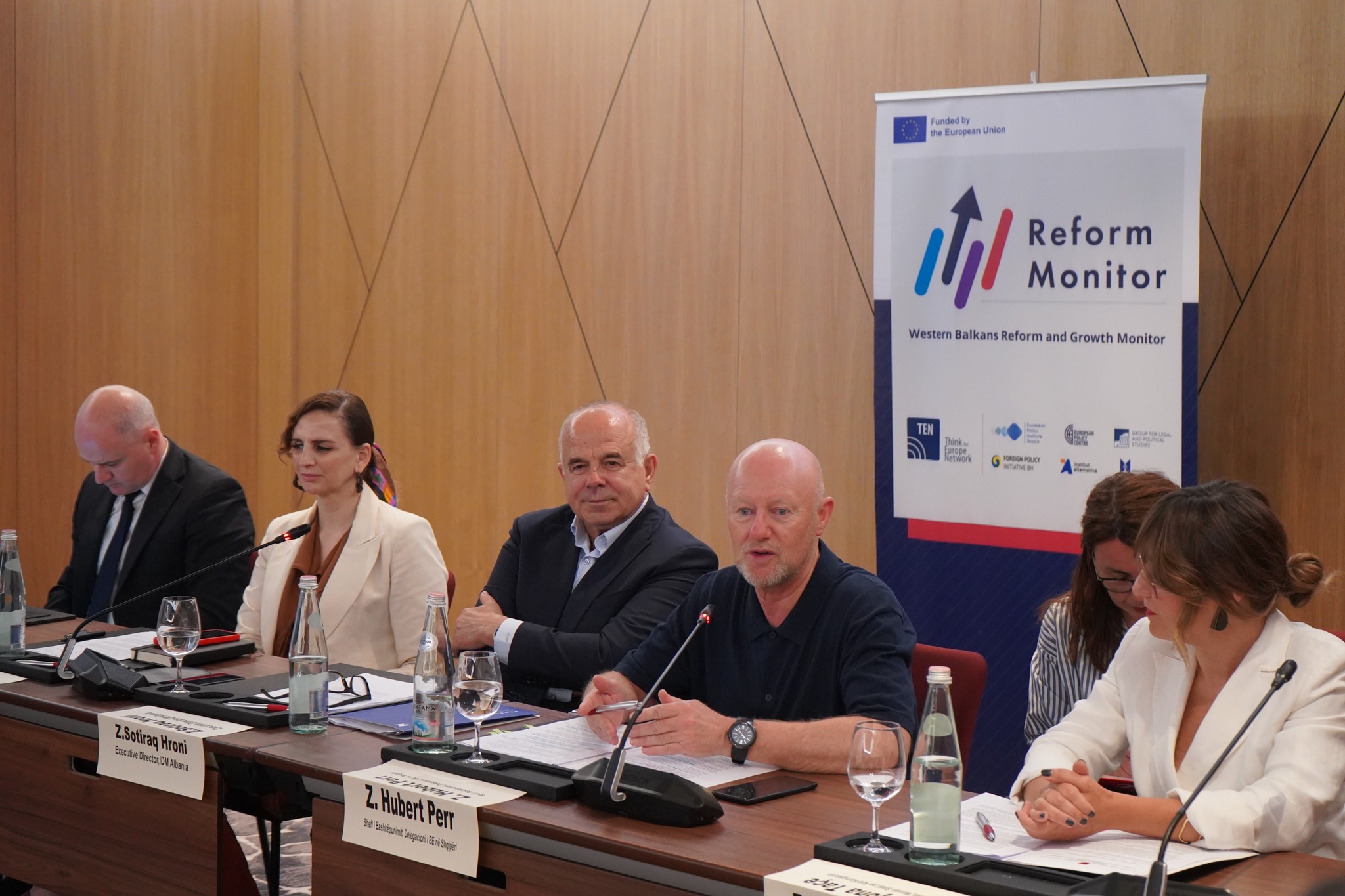Security Research Forum: The Brussels Agreement Kosovo – Serbia
Research Forum – 28 May 2013 – Prishtinë / Kosovo
The Security Research Forum Belgrade – Prishtina – Tirana, took place in Prishtina on May 28th. The event was hosted by Kosovar Centre for Security Studies (KCSS) in close cooperation with the Institute for Democracy and Mediation (IDM) from Tirana and the Belgrade Centre for Security Policy (BCSP) from Belgrade.
The forum was dedicated to the discussion about the Agreement on normalization of relations between Belgrade and Pristina, reached on April 19 2013, and the subsequent agreement on its implementation. Three issues that were discussed during the main panel were: strengths and weaknesses of the agreement, who supports and who opposes the agreement and what are the implications of the EU mediated Belgrade-Pristina agreement.
The keynote speakers of the forum were IDM Senior Researcher Arjan Dyrmishi, KSCC Director Florian Qehaja and Prof. Miroslav Hadzic from BCSP. The representatives of the forum agreed that Brussels agreement is a milestone and a significant step forward in the relations between Belgrade and Pristina.
However, they also agreed that the future improvement of the Serbian-Albanian relations depends largely on whether and to which extent the agreement will be implemented.
The host of this event Mr. Florian Qehaja (KCSS) raised his concern about the yet unknown process of dismantling Serbian parallel governing structures from the Serbian inhabited areas.
“In this context it is not very clear how the two police structures would cooperate…and organize their activity. Due to these gaps I see it difficult that the agreement would be implemented in the next future,” – said Qehaja
In addition Mr Dyrmishi (IDM) stressed that the agreement produced in Brussels has its own weak points, considering that it was directly signed from the highest state representatives, lacking a step by step process. “This is an elite’s lead process while lacking a real peace process. There is the opportunity to have inter-institutional cooperation however with the risk of distancing the involved communities” said Dyrmishi.
“Brussels agreement allows both sides to get out of war state of mind and to create conditions for the peaceful settlement of future disputes”, said prof.
Hadzic and added “Benefits of the agreement will become reality depending on success in resolving domestic political issues”.
The forthcoming Research Forum will take place in Tirana.








